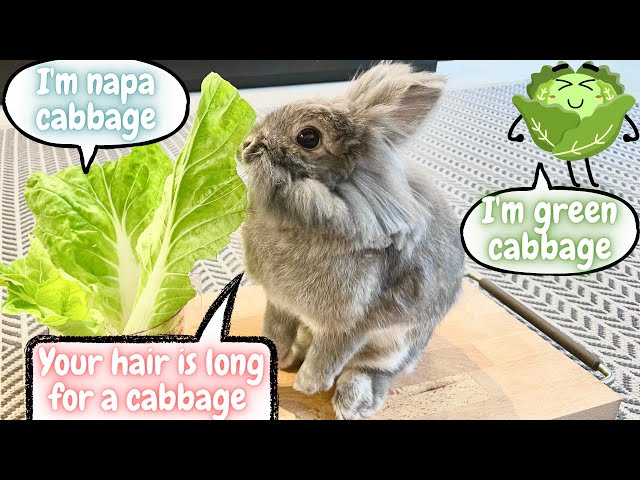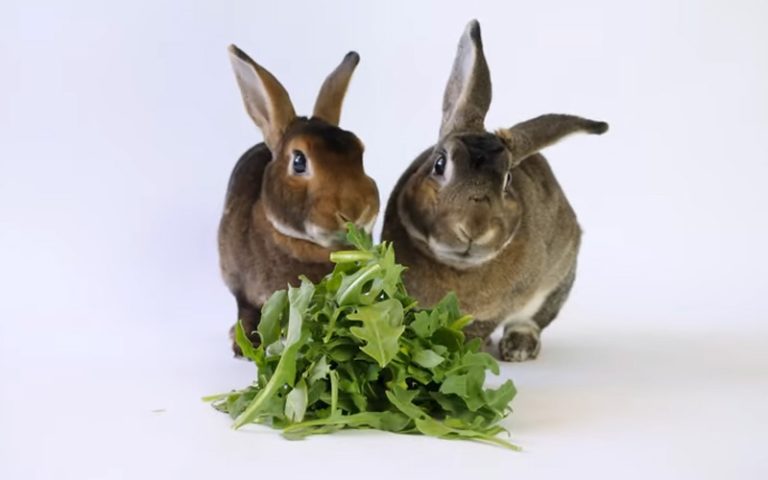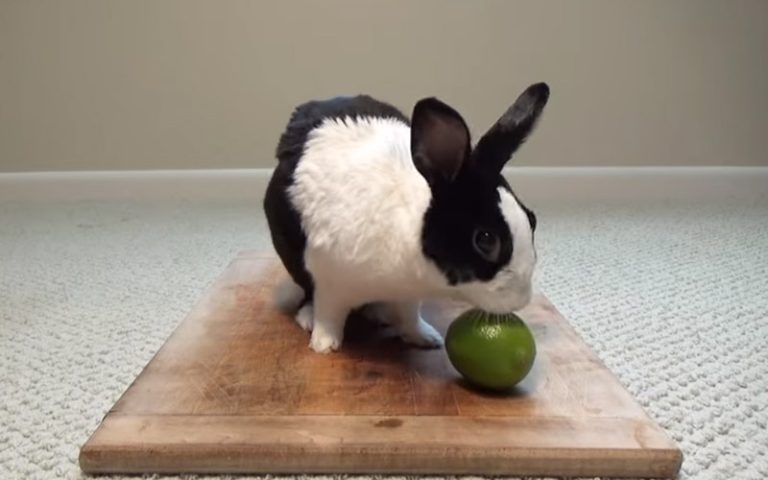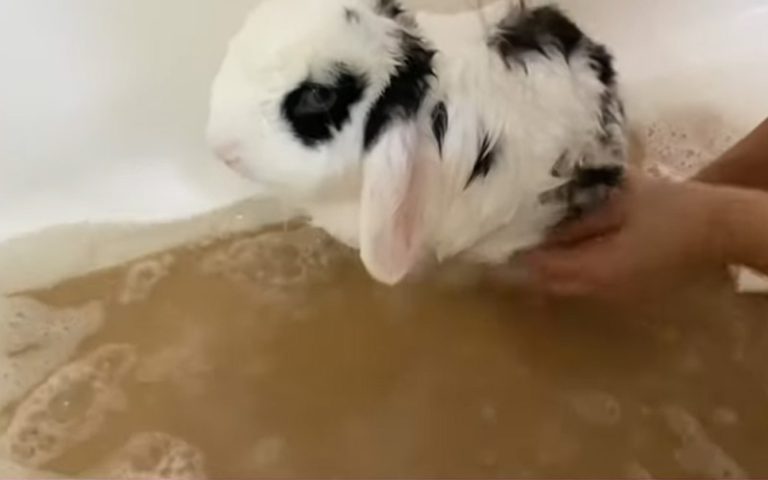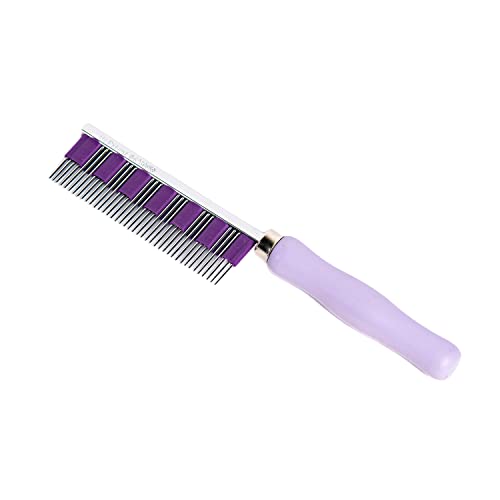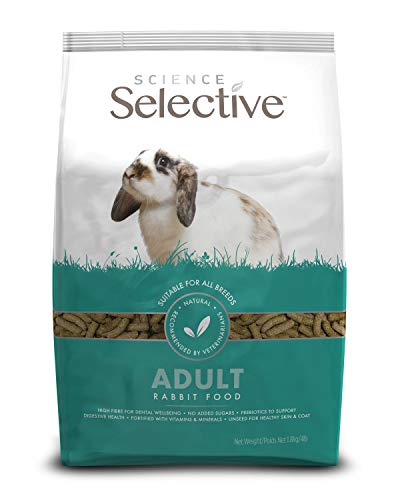Can Rabbits Eat Napa Cabbage? [Nutrition & Feeding Tips]
Yes, rabbits can eat Napa cabbage in moderation. This leafy vegetable provides essential nutrients and is safe for them.
Rabbits thrive on a balanced diet filled with hay, fresh vegetables, and pellets. Napa cabbage, a type of Chinese cabbage, offers a crunchy texture and a mild flavor that many rabbits enjoy. Rich in vitamins A and C, it can boost your rabbit’s overall health.
However, any new food should be introduced gradually to prevent digestive issues. Always wash the cabbage to remove any pesticides or dirt. While Napa cabbage is nutritious, it should not replace hay, the primary component of a rabbit’s diet. Understanding the right foods for your pet ensures they remain happy and healthy.
Introduction To Rabbit Diets
Understanding rabbit diets is key for their health. Rabbits need a variety of foods. A balanced diet helps them thrive. Fresh vegetables are an important part of their meals. One question many owners ask is, “Can rabbits eat napa cabbage?” This post answers that question and more.
The Importance Of Fiber
Fiber plays a vital role in a rabbit’s diet. It aids digestion and keeps teeth healthy. Rabbits need high-fiber foods daily. This helps prevent obesity and other health issues.
- Hay is a primary source of fiber.
- Fresh vegetables add more fiber.
- High-fiber diets support gut health.
Without enough fiber, rabbits can face problems. These include:
- Digestive issues
- Weight gain
- Teeth overgrowth
Offering a mix of hay, vegetables, and pellets ensures fiber intake.
Common Misconceptions
Many people have misunderstandings about rabbit diets. Some believe rabbits can eat any vegetable. Others think all greens are safe. This isn’t true.
Here are some common misconceptions:
| Misconception | Fact |
|---|---|
| All vegetables are safe | Some veggies can harm rabbits. |
| Rabbits can eat fruit daily | Fruits are high in sugar. |
| Pellets are the main food | Hay should be the main food. |
Knowing what to feed rabbits helps keep them healthy. Always research new foods before offering them.
What Is Napa Cabbage?
Napa cabbage, also known as Chinese cabbage, is a leafy vegetable. It has a mild, sweet flavor. This vegetable is popular in Asian cuisine.
Napa cabbage features long, white stalks and crinkly green leaves. Its unique texture makes it a favorite in salads and stir-fries.
Nutritional Profile
Napa cabbage is low in calories but high in nutrients. It provides essential vitamins and minerals.
| Nutrient | Amount per 100g |
|---|---|
| Calories | 12 |
| Vitamin C | 45 mg |
| Vitamin K | 36 mcg |
| Fiber | 1.2 g |
This vegetable is rich in:
- Antioxidants
- Folate
- Calcium
Comparison With Other Vegetables
Napa cabbage stands out among other leafy greens. It offers unique benefits.
- Spinach – Higher in iron but lower in fiber.
- Kale – Richer in vitamins A and C.
- Romaine Lettuce – Crunchier but less nutrient-dense.
Napa cabbage is versatile. It works well in various dishes. Rabbits can enjoy it as a healthy snack.
Benefits Of Napa Cabbage For Rabbits

Credit: hay-day.co.uk
Napa cabbage offers many benefits for rabbits. This leafy green is not only tasty but also packed with nutrients. Feeding your rabbit napa cabbage can enhance their overall health.
Vitamins And Minerals
Napa cabbage is rich in essential vitamins and minerals. Here are some key nutrients:
| Nutrient | Benefit |
|---|---|
| Vitamin A | Supports vision and immune function. |
| Vitamin C | Boosts immunity and promotes skin health. |
| Calcium | Strengthens bones and teeth. |
| Potassium | Regulates fluid balance and muscle function. |
These nutrients help rabbits stay healthy and active. Regular intake supports their overall well-being.
Hydration And Digestive Health
Napa cabbage has a high water content. This helps keep rabbits hydrated. Hydration is vital for their health.
Moreover, napa cabbage aids in digestion. It contains dietary fiber, which promotes gut health.
- Improves bowel movements.
- Prevents constipation.
- Supports a healthy gut flora.
Offering napa cabbage can enhance your rabbit’s diet. A hydrated and well-fed rabbit is a happy rabbit.
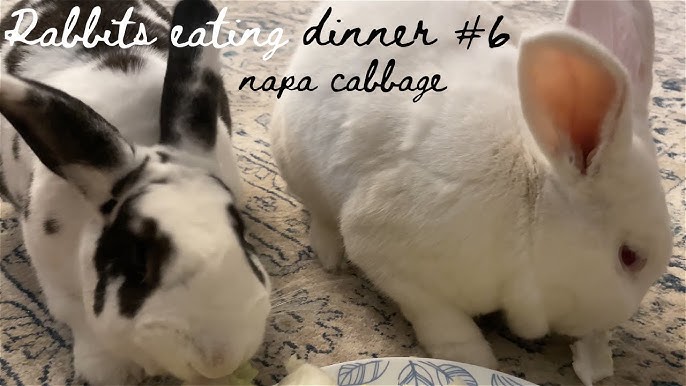
Credit: m.youtube.com
Risks Of Feeding Napa Cabbage To Rabbits
Napa cabbage can be a tasty treat for rabbits. However, it comes with some risks. Understanding these risks helps ensure your rabbit stays healthy.
Goitrogens And Thyroid Function
Napa cabbage contains goitrogens. These compounds can affect thyroid function.
- Goitrogens may hinder iodine absorption.
- Low iodine can lead to thyroid issues.
- Symptoms of thyroid problems include weight gain and lethargy.
Feeding too much Napa cabbage can increase these risks. Limit intake to avoid health issues.
Gas And Bloating Concerns
Napa cabbage can also cause gas and bloating in rabbits. These digestive issues can lead to discomfort.
| Symptoms | Possible Causes |
|---|---|
| Abdominal swelling | Gas buildup from cabbage |
| Reduced appetite | Digestive discomfort |
| Unusual behavior | Pain from bloating |
Monitor your rabbit for these signs. Consult a vet if symptoms occur. Balance their diet with hay and other veggies.
How To Safely Introduce Napa Cabbage?
Napa cabbage is a tasty treat for rabbits. Introducing it safely helps prevent digestive issues. Start with small amounts. Monitor your rabbit’s reaction closely.
Portion Size Guidelines
Portion size matters for your rabbit’s health. Follow these guidelines:
- Start with a small leaf, about 1-2 inches in size.
- Gradually increase to half a leaf after a few days.
- Maximum portion should not exceed 1 cup per 5 lbs of body weight.
Always wash the cabbage before giving it to your rabbit. This removes pesticides and dirt.
Frequency Of Feeding
How often should you feed napa cabbage? Here’s a simple plan:
- Introduce it 2-3 times a week.
- Observe for any signs of upset stomach.
- Adjust frequency based on your rabbit’s tolerance.
Keep fresh hay and water available at all times. This ensures a balanced diet.
Alternatives To Napa Cabbage
Rabbits can eat various leafy greens. Some greens are safer than Napa cabbage. Here are some great alternatives that provide essential nutrients.
Safe Leafy Greens for Rabbits
Choosing the right leafy greens is crucial. Some safe options include:
- Romaine Lettuce
- Green Leaf Lettuce
- Swiss Chard
- Kale
- Mustard Greens
These greens are high in vitamins and minerals. They also help maintain hydration. Offer these in moderation. Too much can lead to digestive issues.
Diverse Diet for Optimal Health
A diverse diet keeps rabbits healthy. Mix different greens for the best results. Here’s a table of safe greens:
| Green | Benefits |
|---|---|
| Romaine Lettuce | High in fiber and low in calories. |
| Swiss Chard | Rich in vitamins A, C, and K. |
| Kale | Good source of calcium and antioxidants. |
| Mustard Greens | Contains omega-3 fatty acids. |
Offer a variety of these greens daily. This helps prevent boredom and promotes good health. Always wash greens thoroughly. Remove any pesticides or dirt.
Monitoring Your Rabbit’s Health
Keeping a close eye on your rabbit’s health is crucial. Proper diet impacts their well-being. Napa cabbage can be a part of their diet, but moderation is key. Watch for any signs of distress after they eat it.
Signs of Digestive Distress
Rabbits can experience digestive issues. It’s important to recognize the symptoms early. Look for these signs:
- Changes in appetite: Eating less or refusing food.
- Abdominal bloating: A swollen or hard belly.
- Diarrhea: Soft or watery droppings.
- Constipation: Infrequent or hard stools.
- Lethargy: Lack of energy or movement.
Any of these symptoms can indicate a problem. Early detection is essential for treatment.
When To Consult A Vet?
Consult a veterinarian if you notice troubling signs. Quick action can prevent serious issues. Consider visiting the vet if:
- Appetite drops significantly for over 24 hours.
- Stomach bloating persists for more than a few hours.
- Diarrhea lasts longer than a day.
- Rabbit shows signs of pain or discomfort.
- Overall behavior changes suddenly.
Regular vet check-ups support your rabbit’s health. Discuss their diet, including Napa cabbage.
Owner Tips And Best Practices
Providing the right diet for your rabbit is essential. Napa cabbage can be a great addition. Follow these tips for a healthy and happy bunny.
Wash Produce Thoroughly
Before giving Napa cabbage to your rabbit, wash it well. Dirt and pesticides can harm your pet. Follow these simple steps:
- Rinse the leaves under cold water.
- Use a vegetable brush for extra cleaning.
- Remove any damaged leaves.
Always offer fresh, clean vegetables. This ensures your rabbit stays safe and healthy.
Balancing Treats With Staples
Napa cabbage is a tasty treat, but it should not be the main diet. Balance it with other foods. Here’s a simple guide:
| Food Type | Examples | Serving Size |
|---|---|---|
| Hay | Timothy, Orchard | Unlimited |
| Vegetables | Napa Cabbage, Carrots | 1 cup per 2 lbs of body weight |
| Pellets | High-quality rabbit pellets | 1/4 cup per 5 lbs of body weight |
Offer Napa cabbage as a treat. This keeps your rabbit excited about meals. Monitor your rabbit’s health. Adjust portions as needed.

Credit: www.reddit.com
Frequently Asked Questions
Can Rabbits Eat Raw Napa Cabbage?
Yes, rabbits can eat raw Napa cabbage in moderation. It’s a healthy, crunchy treat for them.
Is Napa Cabbage Safe For Rabbits?
Napa cabbage is safe for rabbits. It provides fiber and essential nutrients but should be given sparingly.
How Much Napa Cabbage Can Rabbits Eat?
Limit Napa cabbage to a small portion, about 1-2 leaves per rabbit. Too much can cause digestive issues.
What Are The Benefits Of Napa Cabbage For Rabbits?
Napa cabbage offers hydration, vitamins, and minerals, promoting overall health and supporting digestion in rabbits.
Now the question is: Can bunnies eat napa cabbage?
Yes, bunnies can eat napa cabbage in moderation. It is safe and provides vitamins like C and K, which are good for their health. However, too much cabbage can cause gas and digestive issues.
It’s best to introduce it slowly and see how your bunny reacts. Make sure to wash the cabbage well to remove any pesticides or dirt.
Always serve fresh cabbage and avoid giving cabbage daily, as a variety of vegetables is essential for their diet.

